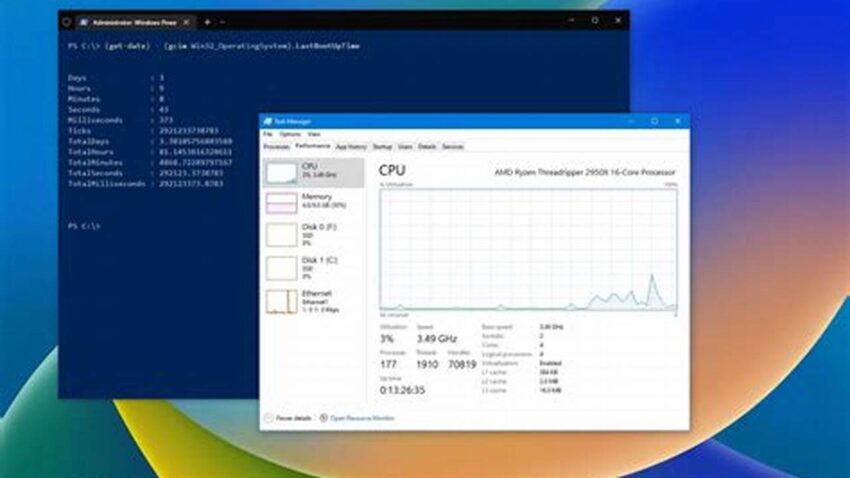Monitoring system uptime is crucial for maintaining service availability and performance. For administrators managing a mixed environment, accessing Windows uptime from a Linux workstation is a common requirement. This provides a centralized point of control and simplifies monitoring tasks without requiring direct access to each Windows server. Several efficient methods enable this cross-platform check, offering varying levels of detail and complexity.
Remote Command Execution
Utilizing tools like PowerShell or command-line utilities remotely over SSH or WinRM allows administrators to execute commands on the Windows system directly from their Linux terminal. This provides real-time uptime information.
SNMP Monitoring
The Simple Network Management Protocol (SNMP) offers a standardized way to collect system information, including uptime. Configuring SNMP on Windows servers and using a Linux-based SNMP client enables regular polling and monitoring of uptime metrics.
Network Monitoring Tools
Comprehensive network monitoring solutions often provide cross-platform uptime monitoring capabilities. These tools offer dashboards and alerting mechanisms for efficient management of heterogeneous environments.
Custom Scripting
Combining various tools and techniques through scripting allows for tailored solutions. For example, a script could periodically query Windows uptime via remote commands and store the data in a central location accessible from the Linux workstation.
Log File Analysis
Analyzing Windows event logs can reveal uptime information. While not real-time, this method can be useful for historical analysis and troubleshooting.
Performance Counters
Windows performance counters offer detailed system metrics, including uptime. Accessing these counters remotely from Linux requires specific tools and configurations.
PowerShell Remoting
PowerShell offers powerful remoting capabilities for managing Windows systems. Linux users can leverage tools that enable PowerShell remoting to retrieve uptime data.
Dedicated Monitoring Agents
Installing dedicated monitoring agents on Windows servers can provide efficient and reliable uptime tracking, sending data to a central monitoring system accessible from Linux.
Cloud Monitoring Services
If the Windows servers reside in a cloud environment, utilizing the cloud provider’s monitoring services often offers seamless cross-platform uptime tracking and reporting.
Tips for Efficient Uptime Checking
Regularly test and validate the chosen method to ensure accuracy and reliability.
Implement appropriate security measures when accessing Windows systems remotely.
Consider the scale and complexity of the environment when selecting a method.
Establish thresholds and alerts for proactive monitoring and issue identification.
Frequently Asked Questions
How can PowerShell be used for this task?
PowerShell’s `Get-WmiObject Win32_OperatingSystem | Select-Object LastBootUpTime` command retrieves the last boot time, which can be used to calculate uptime.
What are the benefits of SNMP for uptime monitoring?
SNMP provides a standardized and efficient way to gather system information from various devices, including Windows servers, making it suitable for large-scale monitoring.
Are there any security considerations?
Yes, ensure secure communication channels like SSH or WinRM are used for remote access to protect sensitive information.
What if I need historical uptime data?
Analyzing Windows event logs or leveraging dedicated monitoring tools that store historical data can provide insights into past uptime performance.
What are some common Linux tools used for SNMP monitoring?
Tools like `snmpget` and `snmpwalk` can retrieve SNMP data from Windows servers.
How can I automate uptime checks?
Scripting languages like Bash or Python can be used to automate the process of retrieving and processing uptime data.
Choosing the appropriate method to check Windows uptime from Linux depends on specific needs and infrastructure. By understanding the available tools and techniques, administrators can implement efficient and reliable monitoring strategies to maintain optimal system performance and availability.

